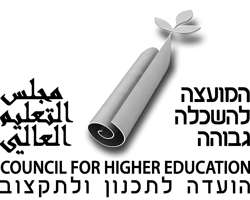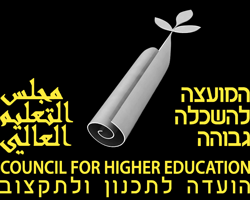English Language Studies Revolution in Academia
The CHE Has Established a New Requirement – Every Student Will Need to Take At Least Two Courses in English
Immediate significance: Within five years, academic institutions will switch over to a four language skills study method – Reading, writing, comprehension, and speech – coupled with each higher education student taking at least two courses in English – language training or English content courses – according to the student’s level of English.
The CHE has indicated that proficiency in English language skills is required in order to understand the background materials in the various courses that are part of academic studies as well as to facilitate the best possible integration of students into the local and international employment markets.
Today (December 17, 2019), the Council for Higher Education approved these reforms in English language studies in higher education.
The decision stipulates that within five years (by the 2024/25 school year), the higher education system in Israel will switch over to English language studies and assessment using a methodology that includes the four necessary language skills: Reading, writing, comprehension, and speech (the Common European Framework of Reference for Languages – CEFR).
Any student who begins his studies in the Israeli higher education system as of the 2021/22 school year will take at least two courses in the English language during the course of his/her undergraduate studies. This requirement may include: Preparatory courses for language study, content courses in the student’s discipline, electives, enrichment courses, lateral courses in English at the student’s institution, etc. The courses that the student takes will be determined according to his/her level of English at the time he/she is accepted as a student.
This reform in English language studies follows a report by the international committee that the CHE had in order to review the study of English for academic purposes in Israel as well as the responses by institutions of higher education and the national student union. Prof. Haim Teitelbaum led this CHE initiative.
In order to maintain continuity of content and knowledge of English from high school into the academic world, the process was coordinated with the Ministry of Education, which committed to switching over to the new format utilizing the four above skills in English language studies, including in matriculation exams.
Prof. Ido Perlman, Deputy Chair of the CHE: “The Council for Higher Education views English language studies as being very important for academic and international purposes, as part of the provision of sufficient tools and knowledge to students during the course of their academic degree studies as well as their optimal integration into the local and international employment market after completing their studies.”
The PBC and the CHE will assist academic institutions in preparing for this reform and recommends establishing infrastructure to train English lecturers to teach the four required skills according to the CEFR, train teachers to teach course content in English (English Medium Instruction – EMI), translation, conversion, maintenance, and development of courses to be taught in English, and further recommends the establishment of an institutional infrastructure to identify and assist students having difficulties in English language studies.



